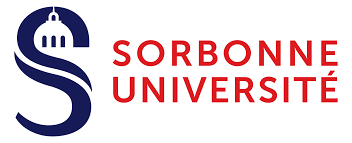Members of MetaboHUB
The MetaboHUB infrastructure is distributed on 4 sites in France indicated by the pictogram : .
The MetaboHUB infrastructure is distributed over 5 sites in France
- MTH-Bordeaux: BMP Bordeaux
- MTH-Clermont: PFEM Clermont-Ferrand
- MTH-Paris: Metabolome Ile de France (IDF)
- MTH-Toulouse: MetaToul Toulouse
- MTH-Grand-Ouest :
 MTH-Bordeaux or "Bordeaux Metabolome platform" (BMP) is a metabolomics facility (IBiSA and INRA-Strategic-Platform labeled since 2008) dedicated to plant functional genomics, plant genetics and breeding, plant-pathogen/pest relationships and plant ecophysiology. BMP is devoted mostly to plant samples or plant-derived samples. BMP offers services or research collaborations to public and private research partners for the acquisition and interpretation of metabolomics and lipidomics profiles, the identification and/or the analysis of metabolites (NMR, MS), and the measurements of isotopic enrichment. Training and technological developments are other activities of the platform. Bordeaux Metabolome Facility has been approved by LRQA to the ISO 9001:2008 Quality Management System Standard.
MTH-Bordeaux or "Bordeaux Metabolome platform" (BMP) is a metabolomics facility (IBiSA and INRA-Strategic-Platform labeled since 2008) dedicated to plant functional genomics, plant genetics and breeding, plant-pathogen/pest relationships and plant ecophysiology. BMP is devoted mostly to plant samples or plant-derived samples. BMP offers services or research collaborations to public and private research partners for the acquisition and interpretation of metabolomics and lipidomics profiles, the identification and/or the analysis of metabolites (NMR, MS), and the measurements of isotopic enrichment. Training and technological developments are other activities of the platform. Bordeaux Metabolome Facility has been approved by LRQA to the ISO 9001:2008 Quality Management System Standard.In the scope of MetaboHUB, BMP intents to widen the metabolomics/lipidomics targeted or untargeted profiling methods proposed so far for plant samples and identify new plant compounds. MetaboHUB will allow (i) implementing targeted LC-MS quantification of low concentration metabolites, (ii) developing high-throughput MS lipid profiling, (iii) facilitating and speeding up metabolite identification in non-targeted metabolomics and lipidomics analyses, (iv) developing new expertise on metabolomics analysis at subcellular level and on metabolics networks, (v) following up the development of spectral and knowledge databases initiated in previous projects.
Photographe © Thomas Sanson

MTH-Clermont or Platform "Exploration du Métabolisme" (PFEM, Clermont-Ferrand) is the major national platform in metabolomics to invest in exploration of the effects of foods and nutrients on main physiological functions in human and animal, as well as exploration of environmental compartments and threatening. It provides to the scientific community, concepts, tools and methods in the emerging field of global analysis of metabolism in order to analyze the metabolic diet's effects, to identify and quantify new biomarkers linked to the nutritional status and to improve the early diet associated disease diagnostics.
PFEM gained the IBiSA label in 2010. PFEM is dedicated to metabolic studies, from very detailed biochemical mechanisms to global metabolomics approaches.
In the framework of MetaboHUB, PFEM aims at: (i) enhancing the analysis rapidity and the robustness of metabolite identification in various biofluids (ii) facilitating metabolite identification and quantification in non-targeted metabolomics analyses in order to discover biomarkers of endogen metabolism dysfunction and food consumption, (iii) producing spectra databases and upgrading data mining tools development initiated in previous projects, (iv) developing new expertise in combined metabolomics-fluxomics analysis.
In the framework of MetaboHUB, PFEM aims at: (i) enhancing the analysis rapidity and the robustness of metabolite identification in various biofluids (ii) facilitating metabolite identification and quantification in non-targeted metabolomics analyses in order to discover biomarkers of endogen metabolism dysfunction and food consumption, (iii) producing spectra databases and upgrading data mining tools development initiated in previous projects, (iv) developing new expertise in combined metabolomics-fluxomics analysis.



MTH-Paris or plateform MetabolomeIDF (Ile de France, Paris-Saclay) platform is a multi-site platform dedicated to atmospheric pressure ionization-mass spectrometry (API-MS) based metabolomics and data processing, analysis and annotation. MetabolomeIDF brings its knowledge and experience in mass spectrometry based analysis of human biofluids and cell extracts for biomarker discovery to the MetaboHUB consortium. It aims to participate in large epidemiological cohorts and in clinical studies. In the framework of MetaboHUB, MetabolomeIDF will help to develop quantitative metabolomics, building relational databases of metabolites and metabolic signatures in biofluids in various physiological and pathological conditions, and will underpin the use of metabolomics in clinical laboratories for a qualitatively better medical follow-up of patients. MetabolomeIDF is also characterized by its competences in the development of algorithms and software tools required for the signal processing, multivariate data analysis and data mining of high resolution LC-MS data for metabolomics, and for their integration with other “omics” platforms for biomarker discovery, detection of alerts, robust clinical signatures, etc. (e.g. AgriFood GPS Oseo project and Biomargin FP7 European project).

Crédits : P. Stroppa/CEA, L. Godart/CEA

MTH-Toulouse orMetaToulPlatform is a multisite Metabolomics & Fluxomics
Platform that merges theexpertise and facilities in the field of metabolomics of 4 laboratories located in Toulouse. It gained IBiSA label in 2009 and is considered as an INRA ‘Strategic Platform’. MetaToul provides NMR & MS equipments, tools, and expertise for two fields of research: 1) microbiology and host/micro-organism interactions and 2) health & food safety.
Due to the complementary expertise (biochemistry, analytical chemistry, biophysics, bioinformatics, biomathematics) and analytical tools included in the partnership, MetaToul can provide the scientists with a broad range of expertise and services in the emerging domain of metabolomics : i) targeted or large-scale analysis of metabolites, including their structural analysis; ii) identification and analysis of metabolic pathways and metabolic networks; iii) measurement of metabolic fluxes; and iv) chemometrics, metabolic phenotyping and biomarker identification. The services are very diverse in time & efforts, ranging from routine metabolite analyses to extensive development, validation and application of state-of-the-art MS or NMR methods.

3 platforms with complementary expertise at the service of your research
MTH-Grand-Ouest is a multi-site (Rennes, Nantes) metabolomics and fluxomics platform that brings together a wide range of expertise in the analysis of small biogenic molecules. We are able to respond to a wide range of projects in the fields of agronomy, health and food safety.
Together, we will answer your scientific problems by adapting to your needs through different approaches: isotopic analysis, metabolic profiling and structural characterization of metabolites. For technical analyses, our analytical platforms have a wide range of analytical equipment, from mass spectrometry coupled with various chromatographic techniques (gas, liquid, supercritical fluid), to NMR spectroscopy equipped with numerous probes and accessories. Our experts in methodological and technological developments are constantly developing innovative approaches. Our expertise also includes the processing of the generated data thanks to the mastery of tools such as R, Galaxy, as well as statistical analysis.
The CEISAM site includes an NMR platform and an isotope analysis platform of the CEISAM laboratory (UMR 6230 of the University of Nantes and the CNRS - https://ceisam.univ-nantes.fr/equipe-mimm ). It is closely linked to the activities of the MIMM research team, whose expertise is internationally recognized in the field of NMR analysis of mixtures and isotope analysis in natural abundance (isotopomics). Certification and Labels: ISO9001: 2015.
The facilities at P2M2 (Rennes-Le Rheu - https://www6.inrae.fr/p2m2/) are mainly dedicated to targeted and non-targeted chemical analysis of plant metabolites, both primary and specialized. The shared and centralized analytical facilities, mostly based on GC- and LC-MS technologies, are mainly dedicated to internal research programs and external services devoted to metabolic phenotyping for plant resistance to pathogens or tolerance to abiotic stress, to the functional genomic approach of plant nutrition, to yield elaboration, to the evaluation of plant defense responses and agroecological interactions, or to the screening of plant product quality for nutritional, organoleptic or industrial uses. Certification and Labels: IBiSA and ISO9001: 2015.
The MELISA site is part of the LABERCA laboratory (UMR1329 of Oniris and INRAE - https://www.laberca.org/plateforme-melisa ) and benefits from easy access to no less than 17 different mass spectrometers coupled to various chromatographies (GC, LC, SFC). The MELISA platform also benefits from a recognized expertise in the development of mass spectrometry data processing tools. Certification and Labels: ISO9001: 2015 and IBiSA.
MTH-Grand-Ouest is a multi-site (Rennes, Nantes) metabolomics and fluxomics platform that brings together a wide range of expertise in the analysis of small biogenic molecules. We are able to respond to a wide range of projects in the fields of agronomy, health and food safety.
Together, we will answer your scientific problems by adapting to your needs through different approaches: isotopic analysis, metabolic profiling and structural characterization of metabolites. For technical analyses, our analytical platforms have a wide range of analytical equipment, from mass spectrometry coupled with various chromatographic techniques (gas, liquid, supercritical fluid), to NMR spectroscopy equipped with numerous probes and accessories. Our experts in methodological and technological developments are constantly developing innovative approaches. Our expertise also includes the processing of the generated data thanks to the mastery of tools such as R, Galaxy, as well as statistical analysis.
The CEISAM site includes an NMR platform and an isotope analysis platform of the CEISAM laboratory (UMR 6230 of the University of Nantes and the CNRS - https://ceisam.univ-nantes.fr/equipe-mimm ). It is closely linked to the activities of the MIMM research team, whose expertise is internationally recognized in the field of NMR analysis of mixtures and isotope analysis in natural abundance (isotopomics). Certification and Labels: ISO9001: 2015.
The facilities at P2M2 (Rennes-Le Rheu - https://www6.inrae.fr/p2m2/) are mainly dedicated to targeted and non-targeted chemical analysis of plant metabolites, both primary and specialized. The shared and centralized analytical facilities, mostly based on GC- and LC-MS technologies, are mainly dedicated to internal research programs and external services devoted to metabolic phenotyping for plant resistance to pathogens or tolerance to abiotic stress, to the functional genomic approach of plant nutrition, to yield elaboration, to the evaluation of plant defense responses and agroecological interactions, or to the screening of plant product quality for nutritional, organoleptic or industrial uses. Certification and Labels: IBiSA and ISO9001: 2015.
The MELISA site is part of the LABERCA laboratory (UMR1329 of Oniris and INRAE - https://www.laberca.org/plateforme-melisa ) and benefits from easy access to no less than 17 different mass spectrometers coupled to various chromatographies (GC, LC, SFC). The MELISA platform also benefits from a recognized expertise in the development of mass spectrometry data processing tools. Certification and Labels: ISO9001: 2015 and IBiSA.

